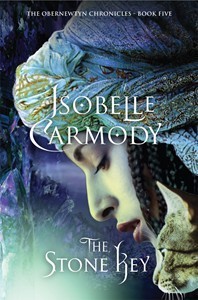
Darkfall
Book Description
In a world where darkness holds unimaginable power, a fierce battle for survival begins. A group of unsuspecting teenagers finds themselves entangled in a supernatural war that threatens to consume them all. As friendships are tested and loyalties falter, the stakes rise higher with every heartbeat. Secrets unravel and shadows creep closer, leaving them to confront their deepest fears. Trust becomes a perilous game, and the line between hero and villain blurs. Will they unite to confront the encroaching darkness, or will fear tear them apart? In a realm where every choice matters, who will emerge from the shadows?
Quick Book Summary
"Darkfall" by Isobelle Carmody plunges readers into a world teetering on the edge of oblivion, where darkness is not just a force of nature but a living, consuming power. A diverse group of teenagers, each grappling with personal fears and secrets, are thrust into an ancient supernatural conflict that threatens their lives and the fate of their realm. As danger grows and shadowy forces close in, the group’s unity is tested by the dual pressures of external enemies and internal doubts. Friendships are strained, betrayals seem inevitable, and the line between friend and foe blurs. Faced with terrifying choices and the seductive allure of power, the teens must reckon with what it truly means to be a hero. Ultimately, "Darkfall" is a story about courage, trust, and resisting the darkness within and without.
Summary of Key Ideas
Table of Contents
The Nature and Lure of Darkness
In "Darkfall," the world is threatened by a supernatural darkness that represents both a literal and figurative force of destruction. The protagonists—teenagers who are initially unaware of the greater conflict around them—are drawn into this perilous struggle when shadowy events begin to disrupt their once-familiar lives. Their discovery of ancient prophecies and secret histories forces them to reconsider everything they thought they knew about their world and each other. The darkness, seductive and intelligent, tempts some, while terrifying others, complicating the challenge ahead.
Trust, Betrayal, and Loyalty
The bonds of friendship in the group are put under immense strain as secrets come to light. Loyalties are questioned, and the sense of safety within the group deteriorates when betrayals and misunderstandings surface. Trust becomes both a weapon and a vulnerability as the characters wrestle with choices that often seem to pit survival against companionship. These emotional ruptures are as harrowing as the battle with supernatural forces, and the teenagers must learn the value of loyalty, as well as the pain that comes from its absence.
Coming of Age Through Crisis
Each character’s internal journey is shaped by the escalating crisis. They are forced to confront fears—some born of their pasts, others conjured by the darkness itself. The crisis acts as a crucible, accelerating their growth and demanding self-reflection. Coming of age under these circumstances requires the characters to challenge their own prejudices, discover strengths born of hardship, and accept the responsibility their new reality demands. Personal growth is both a weapon against darkness and a path to self-discovery.
Power and Its Consequences
Themes of power—and the consequences of wielding or coveting it—weave through the narrative. Some characters find themselves attracted to the dark for the control it promises, while others resist, aware that power often comes at a steep price. The story explores how ambition, fear, and the desire for agency can corrupt even those with the best intentions, and how true strength often lies in resisting easy temptation for a harder, more principled path.
The Blurring Line Between Good and Evil
As the story reaches its climax, the boundaries between good and evil become increasingly blurred. The darkness is not wholly external, and each character must face the shadows within themselves. Decisions must be made, alliances forged or broken, and sacrifices accepted for the good of the many. The ultimate question is not simply about defeating darkness without, but whether the characters can hold onto their own humanity—and to each other—in the process.
Download This Summary
Get a free PDF of this summary instantly — no email required.





